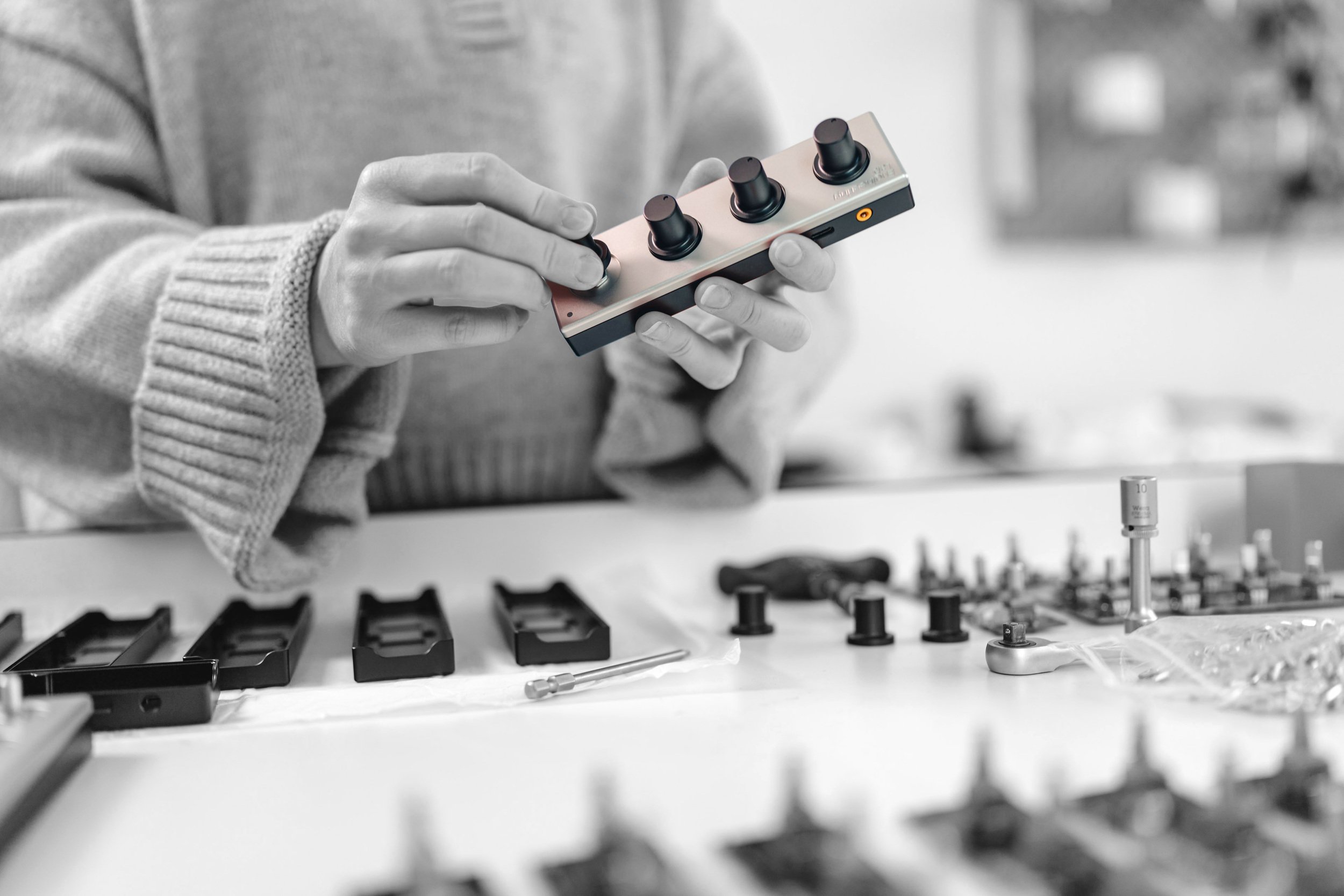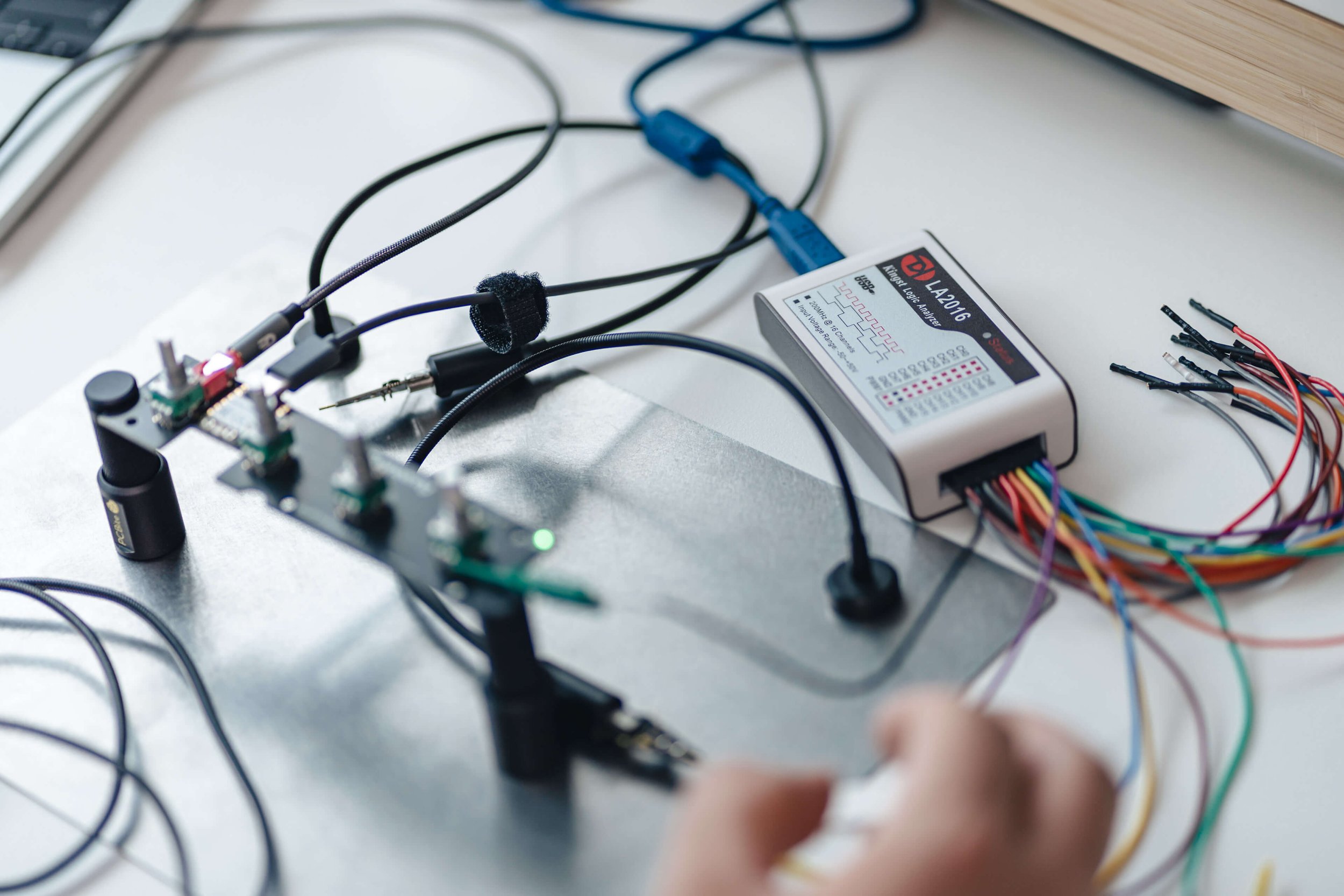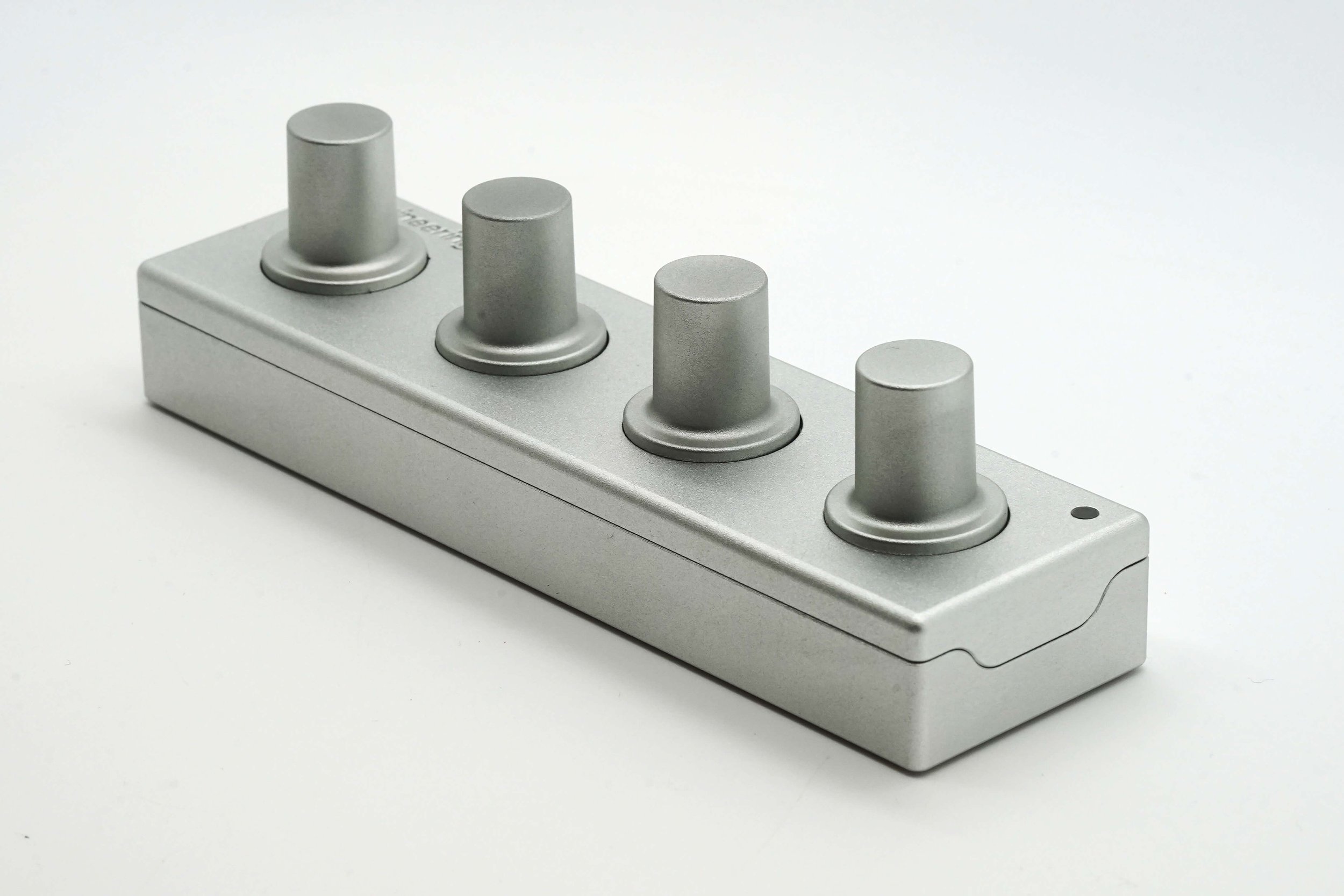Small Batch Production: Fuelling Innovation for Startups and Scale-ups
For startups and scaleups in product development, the path from idea to launch is packed with critical decisions. Small batch production has become a game-changer, allowing companies to navigate the market faster, gather insights, and refine their products based on real-world feedback. At Engineering Lab, we see small batch production as a vital stepping stone in the innovation process, especially in sectors like music technology, electronics, and industrial design.
Small batch production provides a lean approach that aligns perfectly with the realities of limited budgets and rapidly shifting market needs. By using smaller production runs, startups gain flexibility and can reduce initial investment risks. Let’s explore why small batch production is valuable, the unique benefits it offers to early-stage companies, and how we applied these principles to create a custom MIDI controller tailored for professional music studios.
First Production Run of the EL4P MIDI Controller
EL4P MIDI Controller Assembly in Progress
Why Small Batch Production Matters
Small batch production isn’t just a scaled-down version of traditional manufacturing; it’s a fundamentally different approach with distinct advantages. Here are some of the core reasons why small batch production is particularly suited to startups and scaleups:
1. Cost Efficiency
For startups, capital is often limited, and investing in a large production run can be risky without market validation. Small batch production allows companies to launch their products with a reduced initial investment, freeing up funds for other critical areas such as research, development, and marketing. By manufacturing in smaller volumes, startups can avoid holding large inventories of unsold products and reduce the financial pressure of upfront costs.
Small batch production also enables companies to scale gradually, using revenue from early sales to fund subsequent production runs. This reduces reliance on external funding and provides more control over cash flow—a significant benefit for startups operating with lean budgets.
2. Flexibility and Adaptability
In fast-paced industries, flexibility is crucial. The ability to pivot and make design changes based on early feedback is invaluable for startups, and small batch production allows for just that. Producing in small volumes enables quick modifications and refinements, making the product more aligned with market demands.
This adaptability is especially important for innovative products, which often require several rounds of user feedback before reaching their final form. Small batch production allows companies to respond to market shifts and make informed decisions on design, functionality, and features based on real user data.
3. Faster Time-to-Market
In today’s competitive landscape, speed matters. The quicker a startup can get its product to market, the sooner it can start generating revenue and building brand recognition. Small batch production shortens the time-to-market by streamlining manufacturing processes and allowing for rapid iteration.
For instance, a startup could launch with an initial batch of 100 units, gather feedback, and then release an improved version within weeks. This iterative approach creates momentum and allows companies to establish a foothold in the market faster than waiting for a large production run.
4. Sustainable Practices and Reduced Waste
Sustainability is becoming increasingly important for businesses of all sizes. Small batch production can significantly reduce waste by producing only what is needed, avoiding the excess stock and material waste associated with larger production runs. This approach is inherently more sustainable, aligning well with the values of eco-conscious consumers and helping startups create a positive environmental impact from day one.
Soldering of PCB in Small Production Run
Testing Electronics for EL4P MIDI Controller
Example in Action: Small Batch Production of a Custom MIDI Controller
Let’s take a closer look at a recent project where small batch production played a key role in bringing a new product to market. At Engineering Lab, we designed and produced a specialized MIDI controller aimed at both professional musicians and home-studio users. The product needed to be highly responsive, feature customizable controls, and offer seamless integration with existing studio setups.
Initial Design and Prototyping
The first step was to design a prototype that met the desired user specifications. This involved a collaborative process with our engineering team, focusing on the physical design, layout of controls, and integration of custom firmware to ensure smooth user interaction. With this initial design in place, we were ready to move into production.
Early Prototype Boxing Mock-Up for EL4P MIDI Controller
Early Prototype of EL4P MIDI Controller
Small Batch Production Run: Phase One
We began with a production run of 100 units, allowing us to control costs while ensuring high quality and precision. We sourced materials that balanced durability with an aesthetic appeal suited for professional studios, including high-quality components for the device’s case, knobs, and pads, essential for the tactile feel users expect from a premium MIDI controller.
For the internal components, we partnered with trusted suppliers who could provide low-volume, high-quality PCBs and other electronic parts. This sourcing model ensured that each unit met our rigorous standards while allowing us to test the production process without committing to larger quantities.
Feedback and Iteration
The initial units were distributed to a select group of early adopters: professional musicians, producers, and studio technicians, who provided feedback based on their extensive industry experience. Their insights highlighted both strengths and areas for improvement, including requests for additional functionality, feedback on ergonomics, and minor software adjustments.
Using this feedback, we refined the hardware and firmware to better suit the needs of our target users. Adjustments included fine-tuning the sensitivity of certain controls and enhancing the MIDI controller’s compatibility with popular digital audio workstations (DAWs). Thanks to the flexibility of small batch production, these improvements were quickly integrated into the next production phase.
Feedback in Action as Music is Produced with the EL4P MIDI Controller
Two Staff Discussing Finer Points of EL4P MIDI Controller Design
Scaling Up with Confidence
After refining the design based on real-world feedback, we moved into a second, slightly larger batch—this time producing 500 units with all the updates that enhanced usability and reliability. (I’ve estimated based on the theory here; feel free to change the numbers to reflect what we actually did.) By scaling up incrementally, we minimised risk and built a product that truly resonated with its intended audience—one that had been thoroughly validated by industry professionals.
Box of First Run EL4P MIDI Controllers
Final Quality Control Checks of EL4P MIDI Controller Batch
Key Considerations in Small Batch Production
For startups and scaleups considering small batch production, here are some critical factors that can ensure success:
Design for Manufacturability (DFM) – To transition from small batch to large-scale production smoothly, it’s essential to design with manufacturability in mind. This means choosing scalable materials and components while ensuring product parts can be efficiently assembled. A well-thought-out design saves time and money when it’s time to scale.
Supply Chain Management – A reliable supply chain is crucial for low-volume production. Working with suppliers experienced in small batch manufacturing ensures quality and prevents delays. Strong relationships with suppliers help keep production on track.
Quality Control and Testing – In small production runs, quality control is critical. Implementing rigorous testing at every stage ensures that each unit meets high standards and builds customer trust.
Streamlined Logistics and Distribution – Since quantities are smaller, optimizing logistics and distribution can keep costs down and ensure timely delivery. Partnering with a local fulfillment service can help reduce lead times.
Circuit Board Assistant Robot Inspecting EL4P MIDI Controller
Grid of Freshly Made EL4P MIDI Controllers Laid Out in Pattern
Why Small Batch Production is the Future
Small batch production isn’t just a manufacturing choice, it’s a strategic approach that fosters innovation, agility, and sustainability. At Engineering Lab, we believe in the power of this model to bring cutting-edge products to market quickly while allowing startups to validate their ideas without high upfront risks.
With the right approach, small batch production enables companies to enter the market faster, adapt based on user feedback, and build products that truly meet customer needs. It’s a modern solution for a fast-paced world; helping innovation thrive, one batch at a time.











